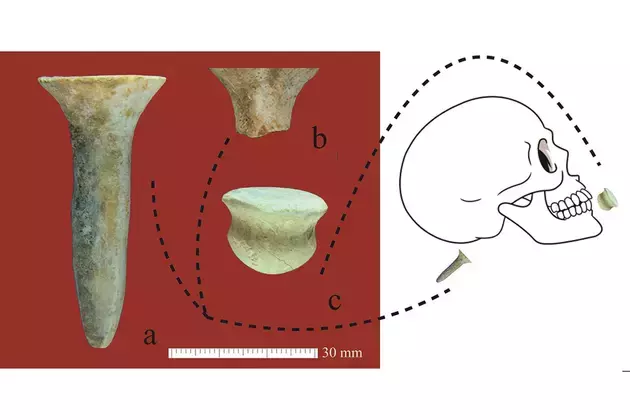Turkish archaeologists have found the oldest-yet evidence of body piercing in human remains dating back 11,000 years.
The findings, published in the journal Antiquity, suggests that the practice had a social significance.
The body ornaments were found next to the ears and chins of excavated human remains, suggesting they were worn like modern-day piercings.
The team observed that only adults had piercings, indicating that they were part of a rite of passage into adulthood.
The team unearthed more than 106 ornaments buried in the graves of individuals dating back 11,000 years at the Boncuklu Tarla, a Neolithic settlement in the present-day Mardin province in southeast Turkiye.
The ornamental pieces were crafted from raw materials like river pebbles, limestone, chlorite, flint, obsidian and copper.
Eighty-five of the ornaments found were complete. According to the paper, the sizes and shapes of the jewellery suggest the pieces were suited for ear and mouth decorations.






